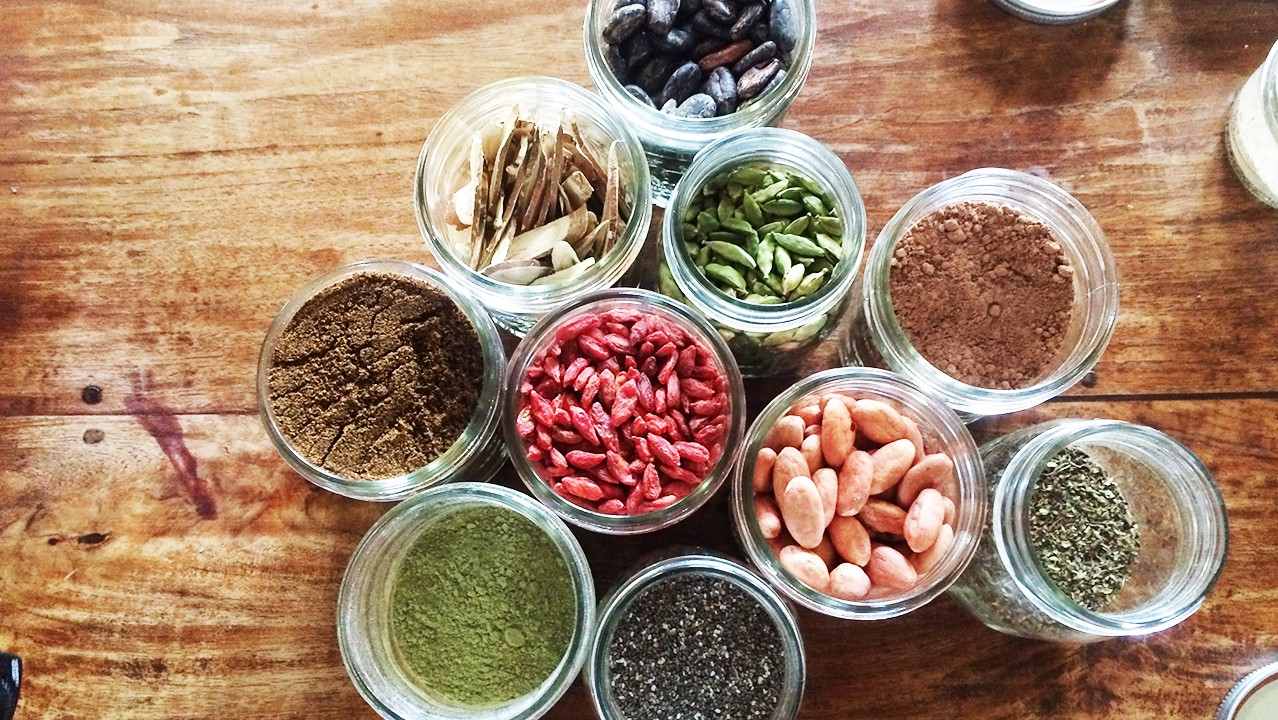My food education began in the spring of 2013 with a man I met on Grindr. He was 47. I was 21 and a junior in college.In that sad span of my life, I’d only had a grand total of one boyfriend, though, technically, he refused to even call me his boyfriend. It was a hopeless time, frankly.I had yet to outgrow my inbred dorkiness, though I was trying my best. I got my nose pierced and stuck a ring through the hole, matching the ears I’d gotten pierced the year before. With the aid of a Gillette Fusion razor and a truckload of Barbasol, I shaved the thick mane coating my head into a jagged and unforgiving mohawk, straight to the skin. Maybe, I thought, this would all reflect the vibrant inner life my otherwise unremarkable appearance had failed to capture. I was certainly hoping.
Advertisement
This costume somehow attracted a man 26 years my senior. He was white, with a bald head, gauged ears, and a red beard showing signs of gray. If you squinted, he resembled a lumberjack. He lived in San Francisco, a train ride away from my campus, and worked at an opera house.We ate at an Indian restaurant in the Mission District on the night of our first date. I have no recollection of the specifics of what we ate. He kept asking me questions about the menu items, falsely believing I could explain the dishes of my parents’ home country, and I didn’t know how to answer. I’d grown up a world away in suburban New Jersey, raised in a family of Bengali immigrants whose dinners were usually rice, dal, vegetables, and chicken swimming in a turmeric-hued lagoon—nothing that was on this menu, in other words. My family rarely ate out; our concept of luxury dining was P.F. Chang’s and the Cheesecake Factory. I had mostly known food in the context of convenience. It was meant to sustain us and nothing more.After dinner, I spent the night at his place. The next morning, we went to a coffee spot nearby, and I stupidly ordered a mocha because I hadn’t quite matured past drinking coffee if it was buried beneath a mountain of sugar. He ordered his coffee black and iced.
Everything I had eaten in that 12-hour period since I met him, I feared, was somehow revealing the embarrassing simplicity of my tastes, how little culture I’d experienced in the 21 years I’d been alive. It might widen the gulf that naturally existed between us because of our age difference. That very contrast informed our attraction to each other, sure—there’s an exhilarating allure to dating an older man, which, I’d learn later, is pretty brittle architecture for romance to be predicated on. But from then on, whatever we ate when we were together exposed the power differential that formed the crux of our bond. He had so much to teach me.I had mostly known food in the context of convenience. It was meant to sustain us and nothing more.
Advertisement
And I certainly had a lot to learn. This was long before I’d begun writing about food professionally. Being a food writer can be a humiliating and humbling experience, I’ve found. You’re reminded every day of how utterly ignorant you are to the massive universe of cooking and restaurants. People around you seem to speak in tongues about ingredients, dishes, and techniques that are too dizzying to keep straight; at the beginning, you simply nod along and make a mental note to Google later. In conditions like these, it’s hard to convince yourself you deserve a seat at this shrinking table of food writers, a profession that feels like it’s dying every day.Anyway, none of this bodes well for my impostor syndrome, but here I am, somehow, an idiot who’s waltzed into this food world from a different planet.At 21, I’d long convinced myself that I could never be someone who thought about food in any sophisticated fashion. That kind of person was entirely unlike me: someone who had been eating organic long before that word was plastered on signs in every grocery store, and who had been hip to almond milk before Michael Phelps was shilling it on television. Someone who was American in the whitest imaginable sense of the word.I’d met that person, finally, and he was a dude on a sex app who lived alone in the Mission. His apartment was a lair he’d pruned of what I considered the essentials. He had no napkins or toilet paper, which horrifies me in retrospect. But it also reflected his bold sense of independence, which held such mystique for me that it took on sensual charge. I had been totally seduced by the image of his lifestyle; I found it desirable because I figured that I could never achieve it myself.
Advertisement
He had no snacks in his apartment, either, not even crackers or chips. When we got back to his apartment later on that first morning together, I told him I was hungry.
“Do you want some nut cheese?” he asked.He reached for a crusty off-white wedge sitting in his fridge, with few other items surrounding it.“What is that?” I stammered. I’d never even heard the phrase.
How did a nut become like that?, I asked myself. Why would a person waste nuts like that? How the fuck is this possible? And what a summarily awful phrase, anyway. ‘Nut cheese.’Making nut cheese, he explained, was a hobby he’d picked up over the past few months, even though he wasn’t vegan. It was made of almonds, actually. He’d blanche the almonds himself, peeling the skin with his fingers, submerging them in a vat of cold water, and soaking them in his fridge overnight. He put them in a blender the next morning with some water and lemon juice and salt and olive oil until, together, the solution achieved the consistency of a paste. He strained the excess liquid with some cheesecloth before he put it in the fridge to firm up. It had been sitting in there for a few days, he told me, but it was still good. He took a spoon and fed it to me.It didn’t taste like any cheese I’d known, I remember thinking—too chalky and insubstantial. But its taste didn’t matter; I was fixated on the unfathomable fact that he’d made it himself. He approached the task of making his own nut cheese with the same diligence with which I’d approached my second-grade art projects: such intense devotion, patience, and care that I couldn’t possibly imagine mustering just to feed myself.I’d met that person, finally, and he was a dude on a sex app who lived alone in the Mission.
Advertisement
I didn’t understand the concept of food for pleasure, of eking out the time to cook because you considered it a form of self-expression on par with any other art. I ate to survive; he was eating to live.I saw him a few more times before I went away for a summer internship, and I spent that summer apart ascribing more meaning to our courtship than was healthy for a man of my age. When I slept with another man that summer, I freaked out, asked myself what I’d done, and texted him in an apoplectic fit of guilt. He told me he didn’t care. I returned to school that September, and, after one visit with him, he broke up with me via email.I was heartbroken for a few days, though it’s now been nearly five years and I swear I’ve gotten over it. When there’s a distraction as blinding as a huge age difference, it takes a lot to startle you, to wake you from the blissful idiocy you’ve busied yourself with. (I realized this for good a few months ago. “He looks like Santa,” a friend to whom I recently showed a photograph of him observed. I had no rebuttal. My friend was right!)My professional life as a food writer can feel as if it depends on convincing the world that I know far more than I really do. It’s a great game of pretending. There’s nothing scarier than admitting how little you know about the very topic you’re paid to write about, because it’s hard for that admission not to sound like an apology. You’re asking a stranger to take you seriously and buy into the charade of your authority. And you must make it look like a cakewalk.
Advertisement
But I wasn’t yet in the habit of faking it when I was 21. My food vocabulary barely existed; it was bafflingly unsophisticated.It expands every day now. I’m still learning what it means to cook in pursuit not simply of sustenance, but out of a deeper desire to satisfy a hunger that goes deeper than your gut. To nourish yourself spiritually, if I’m being corny about it. Until I met this much-older man, I had no working image of what this practice looked like, because no one had thought to invite me into this world.Imagine coming to terms with how little you know simply by looking in someone’s fridge. This man taught me, at the very least, that you can turn a pile of almonds into a block of pretend-cheese. Back then, that was more than I knew.I didn’t understand the concept of food for pleasure, of eking out the time to cook because you considered it a form of self-expression on par with any other art.

